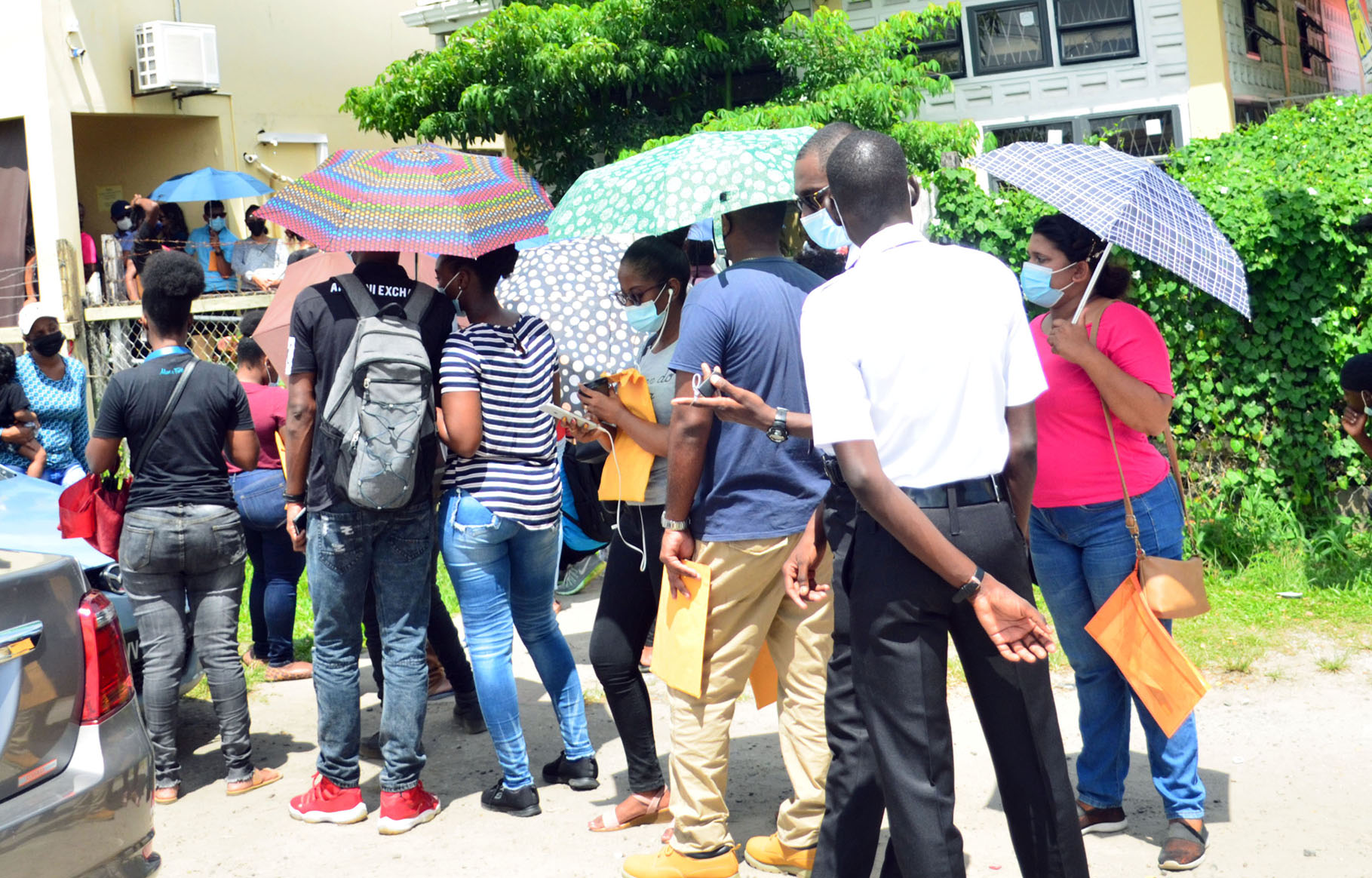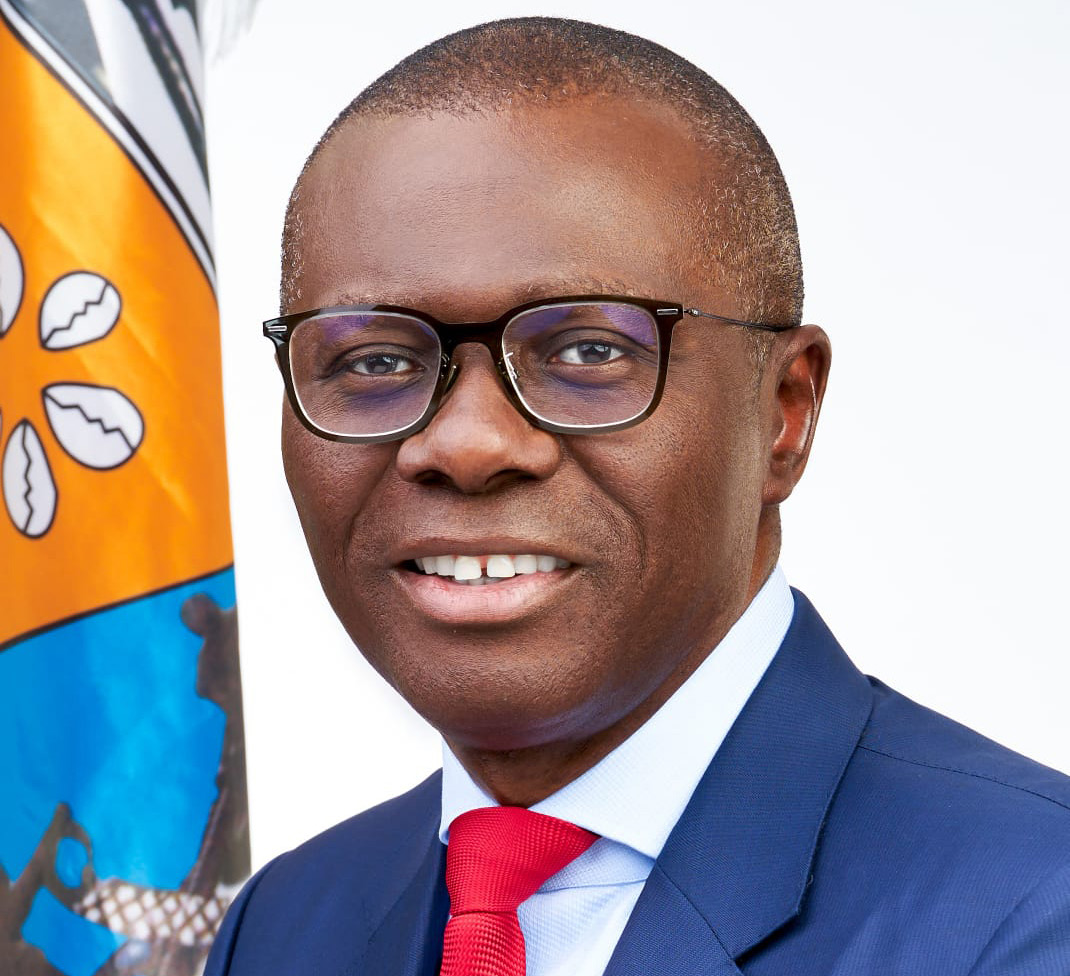By Stabroek News
Copyright stabroeknews

will eliminate lengthy waiting time
Government this week announced that passport applications would be done online by the end of this year, thus eliminating the lengthy time currently being expended by persons who seek the travel document.
“Currently, the online passport application portal is in the final stage of development and is expected to go live before the end of this year,” President Irfaan Ali announced on Tuesday, at his first press conference since beginning his second term in office.
“This system will eliminate the lines that you see at the passport office. We will have a decentralised system where appointments are booked online, and you will go to the nearest service centre to you.”
In addition, he said that as government moves in tune with technological advancements globally, it will also be creating service centres in every region, to have an integrated office where citizens can go and have any government services dealt with at that office.
“So they don’t have to come to the capital. It means the ease of doing business, greater efficiency in the use of time, and at the same time, we are graduating all of the services to a digital platform,” Ali said.
He noted that part of enhancing the experience of persons coming into and leaving Guyana, is the border control and e-gate system and e-passport issuance system. “As you know, we have to be compliant with international standards from a security perspective, from a technology perspective, so that our documents are secure,” Ali said.
Guyana, he pointed out has been “gaining places globally in terms of our passport recognition,” which he believes has to do with the safety mechanisms and system that support this country’s plans. “Border control, our e-gate system, and we have to ensure that our system is rigid and strong enough to identify threats and to, in a proactive way, give information to deal with those threats.”
The border control and e-gate system went live in January, he recalled, while saying that the e-passport issuance system went live in February of this year.
“The new border system has resulted in improved security at the airports and border crossings and assured accuracy and reliability in the verification of the traveller using state-of-the-art technology and rigorous processes aligned with International Civil Aviation Organization standards. The e-passport provides the Guyanese citizen with a next-generation travel document full of advanced security features and functionalities to facilitate safer and more efficient international travel,” Ali posited. He said that overall, government’s public service digitisation and government efficiency system has seen him having meetings with respective personnel and only recently he held a meeting with all the IT heads and outlined the digital transformation plan aimed at fully digitalising all government services before the end of the second quarter in 2026.
“I have announced the appointment of the Chief Technology Officer, who will be supported by the NDMA (National Data Management Authority), to manage the digitisation process and to implement a digital platform to monitor and track key performance indicators for government agencies, ensuring greater transparency, accountability, and efficiency. The national digitisation initiative will be driven by strategic focus on digital infrastructure, artificial intelligence, cross-agency collaboration, and integration of ICT systems so that we will have a common framework, a common system that speaks to each other, that is integrated, that reduces the time to do business, and that improves transparency,” Ali said.
“This will apply across all agencies, including the security agencies: the way in which you get a security clearance, the way in which you get your birth certificate, the way in which persons apply for a death certificate. All of these systems are actively being migrated onto a digital platform,” he added.
Commencing this week, a survey is being conducted to gather information on the current state of digitisation, not only in the government, but across the private sector, because, the President reasoned, the private sector will need to also advance at a similar pace in this digital framework.
“So, we have to have a thorough understanding of what is happening in the private sector also, and how we ensure that in creating this digital space, we have every citizen owning a bank account for example. We are moving on a number of options in dealing with this matter, so that if every citizen has their bank account, then the education around using your digital cards, your plastic cards rather than cheques and moving money, which makes it more transparent, easier to track and everything, becomes the gateway of creating fintech opportunities in our country,” Ali added.



